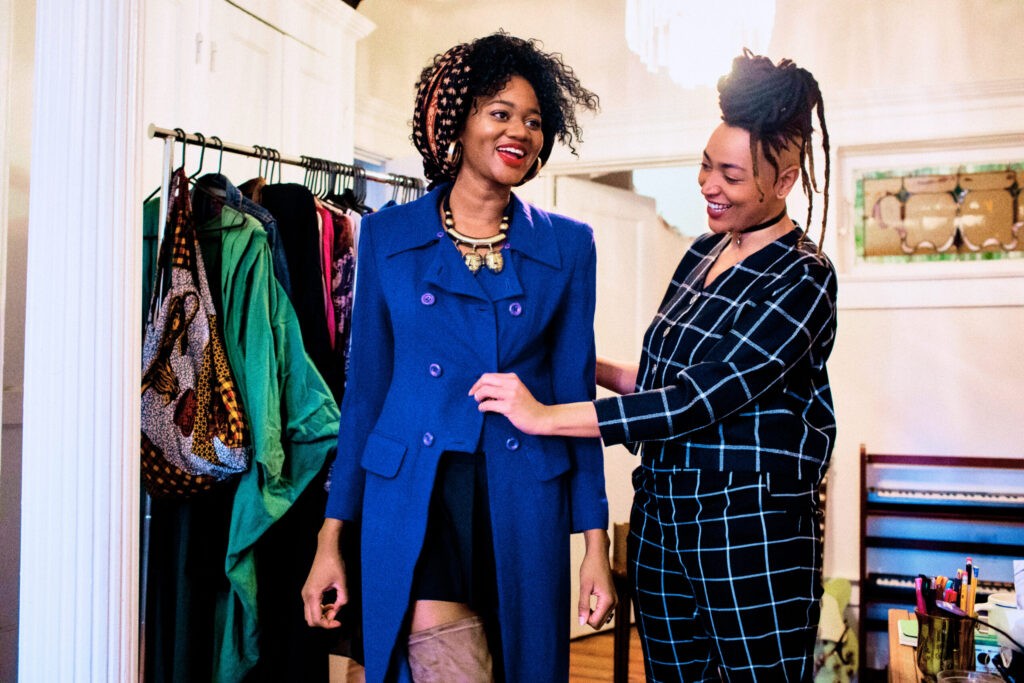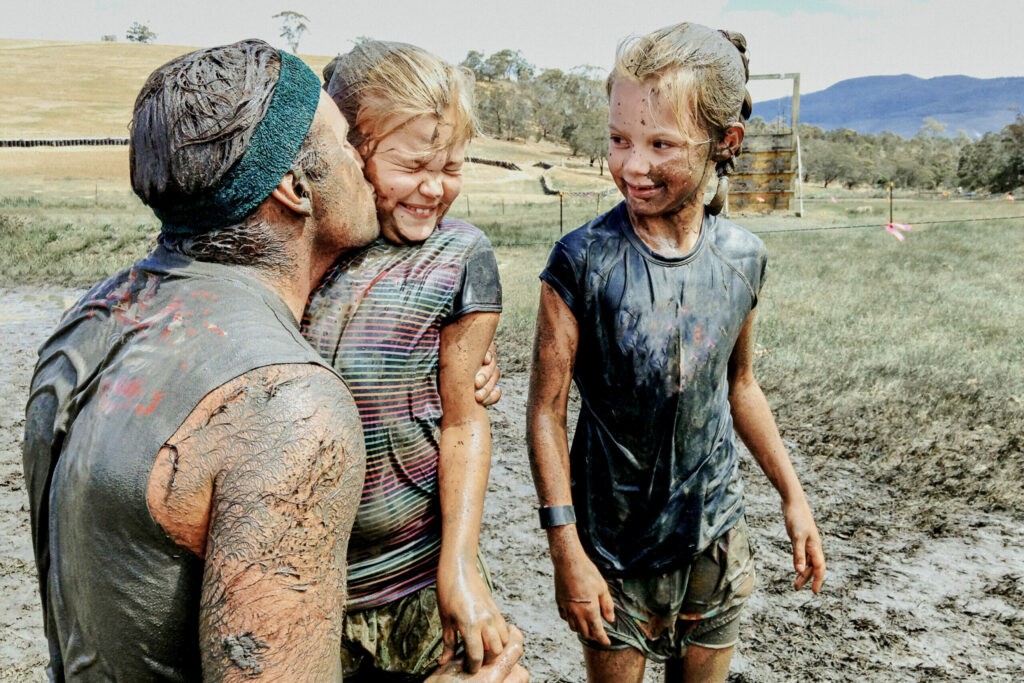Understanding others

Relationships can function on a superficial level for a very long time, even among people who live and work closely with each other for years. Yet we all intuitively recognize and value a connection that is deeper, closer and more empathic in nature, that special “my best friend since forever” type of relationship.
Our ability to empathize is already present in early childhood, and it has a direct impact on our neural mechanisms. The ‘mirror neurons’ in our brain are what helps us gaze at the gestures and facial expressions of our caregivers and develop a shared scheme for interpreting the world around us. This is the earliest basis of empathic relatedness and emotional attachment to others.
Empathy can act like social glue by facilitating communication, fostering compassion, and motivating pro-social behavior. What’s more, empathy can increase our subjective wellbeing and improve our interpersonal relationships, whether at work or in our personal life. It has been shown to increase business performance within teams and foster a deeper bond in personal relationships.
What are the ingredients that contribute to a deeper understanding of another human being, and how can they be applied even in our hybrid age? Take a look at the ‘ingredients list’ below.
Calls for a more personal approach

We work with colleagues, communicate with colleagues, sometimes spend years in their company, side by side (in normal times), but to what extent do we actually know them personally and understand what makes them unique? Is it something that is even necessary or desirable? Or can we simply go through the years chatting about our latest holiday by the coffee machine (or, currently, when meeting on Teams) and getting on with our workload with little attention to personal aspects?
Social sciences research shows that having greater levels of personal knowledge, leads to a more humanized perception of our teammates. The result is more responsiveness and less social undermining. Furthermore, it turns out that this more humanized, more compassionate understanding of the other has a greater positive effect on the relationship than liking, trusting or simply respecting the other. It is even more meaningful than how long you have known that person and how similar you feel the two of you are. After all, most of us like to share a little-known joyful aspect of our personal selves, and are pleasantly surprised when sincerely asked about it. We may even feel relieved to be asked about less pleasant aspects of our lives, for example when we go through challenging times.
Riquires emotional intelligence skills

People who are good at understanding others exhibit some common behavior traits. For example,
- They pick up emotional cues, often from body language, tone of voice, and other non-verbal elements of communication.
- They listen well to what people are saying; actively checking that they understand their counterpart correctly.
- They show sensitivity toward others and understand their perspectives, even when those perspectives are different to their own.
- They are careful not to be offensive, and are aware and respectful of the act that not everyone has the same point of view.
- They help others, based on their understanding of their needs and emotions.
The above skills are sometimes summarized as ‘The 5 C’s’: Connection, Communication, Comfort, Care and Compassion.
Reflection moment
Take a break to reflect on your emotional intelligence skills. Think of a couple of recent communications you have had with colleagues, for example during a virtual meeting or on the phone. It may have been over work and/or personal issues. To what extent in your opinion:
- Have any of these 5 C’s been present in your communication?
- Have you been aware of your communication behavior and response during these recent communication moments?
Further:
- If you had to pick one point of improvement, what would it be?
- Did you ever receive feedback on any of these skills? If so, what was it, and have you acted upon the feedback (positive or less positive) in any way?
Asks for more listening than talking

We touched on this topic last time and briefly above and it is impossible to exaggerate its significance. Most of us are busy pushing our views, ideas and opinions far more than we are busy listening to what others have to say. We are encouraged to sharpen our presentation skills, become successful speakers and be able to share our ideas and theories clearly and convincingly. All too often when others are talking, we’re getting ready to speak instead of listening. Yet, the ability to listen wholeheartedly and be mindfully present with the other lies at the very core of an empathic attitude.
Deep listening is a process of listening to learn. It requires the temporary suspension of judgment, and a willingness to receive new information – whether pleasant, unpleasant, or neutral.
When we truly listen, we can engage with others without pre-conceived assumptions. We establish trust by showing others that we value what they say and that we take them seriously. We get the chance to clarify what the issue really is, and we open ourselves up to the creative ideas of others.
- Ask open questions that allow for expansive answers (instead of yes/no questions)
- Focus on the speaker’s words and avoid giving your opinions/suggestions/comments/solutions. Keep on asking more and more open questions. People want to be heard.
- Learn to become comfortable with short silences. You do not need to fill the space with words. Perhaps someone else has better words to say than you?
- Use positive body language when interacting with others – for example, lean forward, look at them directly and avoid rolling your eyes in judgment if you disagree with them. These gestures can also work well in digital communication.
Reflection moment
Take a look again at the above tips for developing listening skills.
- Being completely honest with yourself, which one of the above listening skills do you think you could improve in yourself?
- If it were up to you, which of the above skills would you choose to train or improve within your team, with the goal of creating more connection, empathy and understanding between team members, especially in the current times?
Note that team discussions will not be productive if you only listen and do not offer your views, so a balance is required. Deep listening aims to create a positive dynamic – neither too dominant with own views, nor too passive in submissively accepting others’ views. Sometimes all it requires is a moment or two of silence, quietly pondering and evaluating the other’s point of view, before formulating a reply. Could it be that the other makes a good point?
Requires sincerity

As humans we are programmed to detect and dislike insincerity, perhaps because we intuitively sense it is not safe or trustworthy. We need to be on our guard around an insincere person. It is almost as if we have an in-built radar for detecting pretense. We detect it through subtle hints in body language, tone of voice or perhaps an inexplicable feeling of unease. There is no question about it – ‘false empathy’ is counter-productive: it backfires on the perpetrator. Genuinely empathetic people elicit a very different response.
Does not mean being ‘soft’

There is no question that empathy and understanding others are important soft skills, but there is nothing soft about having and developing these skills. Understanding others does not mean that you have to agree with their feelings or point of view. Instead, it means that you recognize their point of view, and accept that it is different from yours. You may still have to do difficult things that others do not agree with, but hopefully, both you and they will understand rather than judge that.
Entails empathy – and empathy can be learned

The modern world makes it easy to lose sight of the feelings of others, what with its over-emphasis on rational intelligence, competitiveness and high performance. These values tend to be even more lauded in the business world, where toughness and invincibility are cultivated and appreciated. We tend to think of empathy as an inborn quality – some have it more than others. The truth is, we all possess an innate ability for empathy (you can try this test to see how good you are at it), only most don’t tap into their full empathic potential in everyday life. Empathy means looking at the world through the eyes of others.
The good news is empathy skills can be learned and enhanced. They make for a deeper, more meaningful, richer relationships – both at home and at work. They are even more important these days, when screens and virtual connections keep us even further apart from each other, and body language is more challenging (or even impossible) to read.
If you wish to strengthen your empathic muscles, what could be some skills to work on? Choose any of the following (all equally important):-
1. Develop “extreme listening” skills
Yes, we keep coming back to this point because it is so significant. It is also a skill you can cultivate even in a virtual work environment.
- Let people have their say, fully.
- Hold back from interrupting, judging or commenting.
- Reflect back what they’ve told you, so they know you were really listening.
- Pause and reflect before giving your opinion.
2. Look for the human behind everything
If ever you feel hurt, pained, weak or sick, you crave for understanding from others. If you fall ill or are temporarily unable to work due to a family emergency, you become grateful for the empathy and support of your manager. Can you accord such understanding to others? Can you resist the urge to judge and criticize them, and instead try to be curious about the human behind the character? Here are a couple of suggestions:
- Next time your cleaner comes along (if you have one), can you spare a few minutes to speak with him/her? Who are they, where do they live, who is their family and why did they choose to do cleaning work? Can you make a small effort to get to know the human behind the hoover?
- When your young child starts screaming, can you imagine yourself being his/her age, and what you would have felt like in his/her situation?
- When you next have a call with a colleague (or, if suitable, with a client), be curious about them as a person. Ask a non-intrusive, open question or two that will allow you, little by little, to know more about the human behind the colleague (or client). People often like to speak about themselves and are positively surprised when someone is sincerely interested in their wellbeing. Be gentle and genuine, and you may be in for some pleasant surprises.
3. When in conflict, ask yourself ‘What kind of need is this person trying to fulfill?’
instead of responding immediately. This is one of the cornerstones of the famous ‘Non-Violent Communication’ framework developed by Marshall Rosenberg – actively trying to understand where someone’s anger or upset is coming from, because it often comes from a basic need that is not being fulfilled, and it is much less about you than about them. To get an idea of the kind of needs we all have, check this list.
Pay careful attention to what may lie behind the angry words; what is the person really looking for? Acknowledgment of their pain? Recognition of the injustice done to them? A nod from your side that “yes, you have a point”? You may wish to try this approach first with a close friend or a partner – it is a game-changer, and it requires openness and vulnerability on both sides.
Connect
This block of the program is called ‘Connect’. While you can connect with others on many levels, working out your empathy and emotional intelligence muscles will help you become a kinder and more compassionate person – at home and at work. Being less judgmental and a touch more understanding of others builds relatedness and closeness. It makes for more resilient and constructive relationships, better able to withstand arguments, disputes and disagreements.
Understanding others and employing empathy facilitates collaboration and leads to helping behavior, which benefits social and professional relationships. When people experience empathy, they are more likely to engage in pro-social behaviors that benefit other people. Now, wouldn’t that be wonderful in a team?